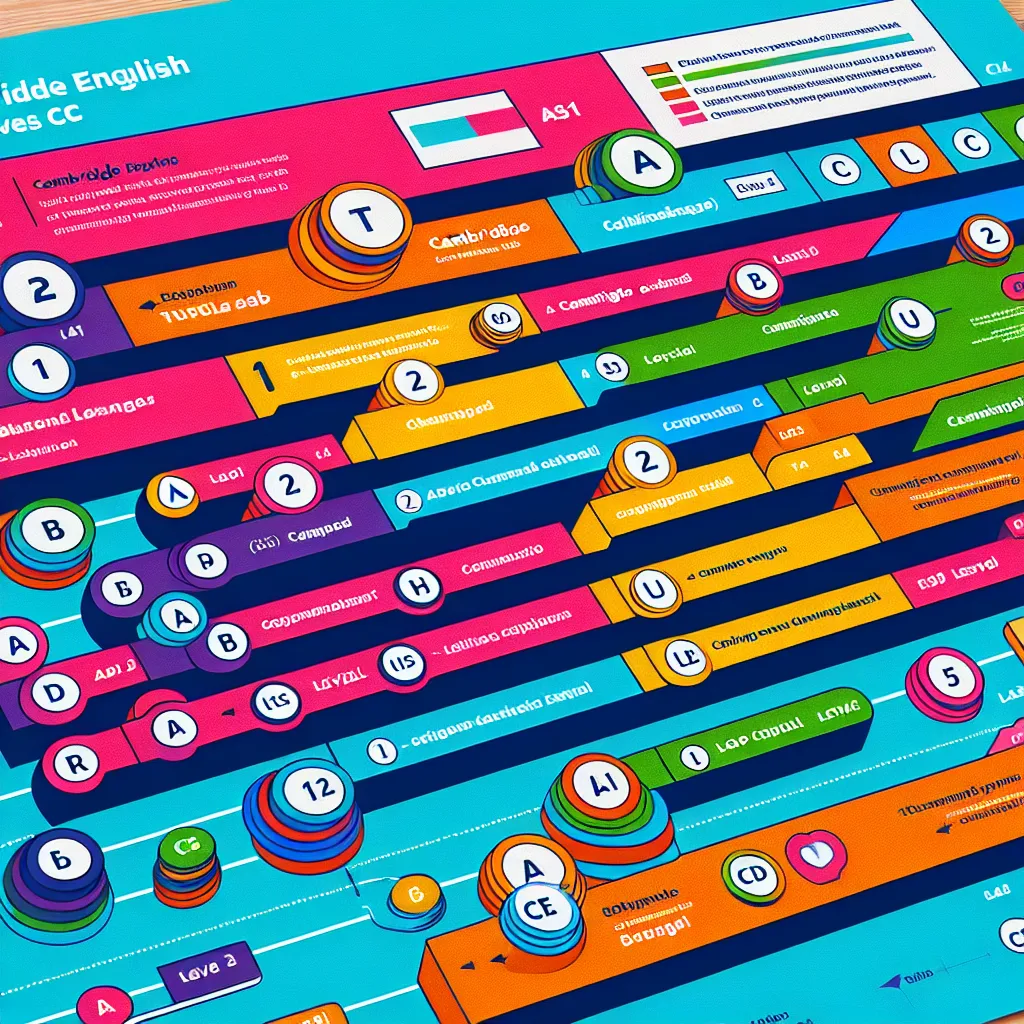Are you planning to take a Cambridge English exam but don’t know where to start? Don’t worry! This comprehensive guide will walk you through the process of preparing for Cambridge English exams at home, providing you with valuable tips, resources, and strategies to boost your confidence and maximize your chances of success.
Understanding Cambridge English Exams
Cambridge English exams are internationally recognized qualifications that assess English language proficiency across various levels. These exams are designed to evaluate your reading, writing, listening, and speaking skills, making them an essential benchmark for academic and professional pursuits worldwide.
 Cambridge English Exams
Cambridge English Exams
Creating an Effective Study Plan
Assess Your Current Level
Before diving into your preparation, it’s crucial to assess your current English level. You can:
- Take a free online placement test on the Cambridge English website
- Complete sample papers for your target exam
- Consult with an English teacher or language school for a professional evaluation
Set Realistic Goals
Once you know your starting point, set achievable goals for your exam preparation:
- Determine which Cambridge exam is right for you (e.g., B2 First, C1 Advanced, C2 Proficiency)
- Set a target date for taking the exam
- Break down your preparation into weekly and daily goals
Establish a Study Schedule
Create a study schedule that fits your daily routine:
- Allocate specific times for each language skill (reading, writing, listening, speaking)
- Include regular breaks to maintain focus and avoid burnout
- Be consistent and stick to your schedule
Essential Resources for Home Preparation
Official Cambridge English Materials
Invest in high-quality, official Cambridge English preparation materials:
- Cambridge English coursebooks
- Practice test books with answer keys
- Online practice tests and resources from the Cambridge English website
Online Learning Platforms
Supplement your study with interactive online resources:
- Cambridge English online courses
- Language learning apps like Duolingo or Babbel
- YouTube channels dedicated to Cambridge exam preparation
Authentic English Materials
Immerse yourself in authentic English content:
- English news websites and podcasts
- English literature and non-fiction books
- English movies and TV shows with subtitles
 English Learning Resources
English Learning Resources
Developing Key Language Skills
Reading Skills
Improve your reading comprehension:
- Practice skimming and scanning techniques
- Read a variety of texts (articles, essays, fiction)
- Complete timed reading exercises to improve speed and accuracy
Writing Skills
Enhance your writing abilities:
- Study different writing formats (essays, reports, emails)
- Practice writing under timed conditions
- Get feedback on your writing from native speakers or tutors
Listening Skills
Sharpen your listening comprehension:
- Listen to English podcasts and radio shows
- Watch English videos with and without subtitles
- Practice note-taking while listening
Speaking Skills
Boost your speaking confidence:
- Speak English daily, even if it’s just to yourself
- Join online language exchange platforms
- Record yourself speaking and analyze your pronunciation
Exam-Specific Strategies
Familiarize Yourself with Exam Format
Understand the structure of your specific Cambridge exam:
- Review the exam format and question types
- Study the assessment criteria for each section
- Practice time management for each part of the exam
Use Past Papers and Mock Exams
Simulate exam conditions at home:
- Complete full past papers under timed conditions
- Review your answers and identify areas for improvement
- Gradually increase the difficulty of practice tests as you progress
Focus on Exam Techniques
Learn strategies specific to Cambridge exams:
- Understand how to approach multiple-choice questions
- Practice paraphrasing for writing and speaking tasks
- Learn effective note-taking techniques for the listening section
Maintaining Motivation and Tracking Progress
Set Milestones and Rewards
Keep yourself motivated throughout your preparation:
- Celebrate small victories and improvements
- Reward yourself after completing challenging tasks or reaching milestones
- Visualize your success and the benefits of passing the exam
Track Your Progress
Monitor your improvement to stay on track:
- Keep a study journal to record your daily activities and reflections
- Use progress tracking tools or apps
- Regularly assess your skills using practice tests and compare results over time
Common Mistakes to Avoid
- Procrastination: Start your preparation early and stick to your schedule
- Neglecting certain skills: Balance your practice across all language areas
- Overreliance on translation: Think in English and avoid translating from your native language
- Ignoring exam instructions: Always read and follow instructions carefully
- Lack of real-world practice: Engage with native speakers and authentic materials
Next Steps
Now that you have a comprehensive plan for preparing for Cambridge English exams at home, it’s time to take action:
- Choose your target exam and set a realistic exam date
- Gather the necessary study materials and resources
- Create your personalized study schedule
- Start your preparation journey today!
Remember, consistent practice and dedication are key to success in Cambridge English exams. Stay motivated, track your progress, and don’t hesitate to seek help when needed. With the right approach and resources, you can achieve your language goals and excel in your Cambridge English exam. Good luck with your preparation!
[internal_links]
- Tips for Improving Your English Speaking Skills
- Top Online Resources for Cambridge Exam Preparation
- How to Overcome Exam Anxiety: Strategies for Success
- The Importance of English Proficiency in Today’s Global World




